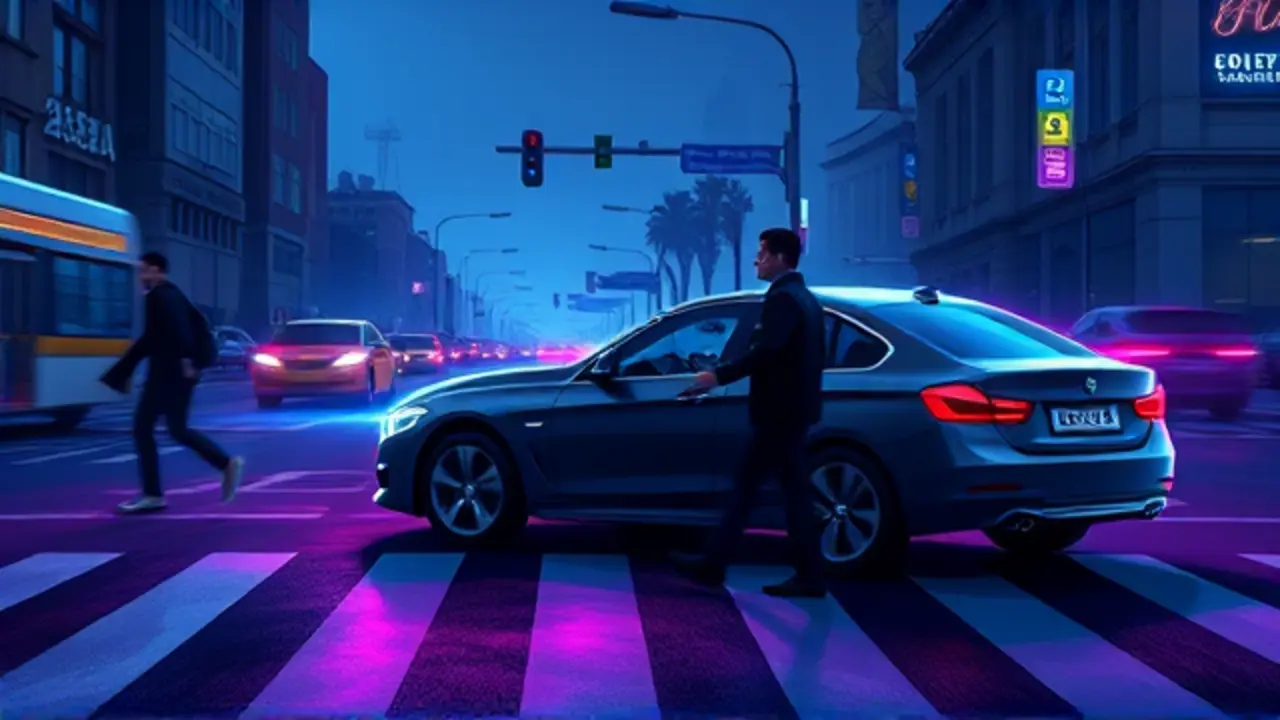Senior Counsel Alan Hoo Denies Careless Driving Charges.
In a case that resonates with the enduring tension between individual accountability and systemic responsibility within civic governance, Senior Counsel Alan Hoo, a legal luminary whose two-decade tenure on the national committee of the Chinese People’s Political Consultative Conference endowed him with a profound understanding of regulatory frameworks, has formally entered a plea of not guilty to charges of careless driving. The allegations, stemming from an incident last year where he was cited for crossing a double white line, have unfolded in the Eastern Court, presenting a tableau far richer than a simple traffic infraction.Mr. Hoo’s defense, a nuanced argument that pedestrians who allegedly “dashed out” from the pavement should share culpability, evokes historical parallels to the complex legal doctrines of contributory negligence, reminiscent of the intricate fault-assignment debates following major industrial accidents of the 19th century.This is not merely a question of a momentary lapse in a driver’s judgment but a microcosm of a broader societal challenge: the allocation of risk and duty on increasingly congested urban thoroughfares. The charges themselves—careless driving and failing to give information on demand—carry a weight that belies their mundane classification, touching upon the very principles of civic duty and the expectation of heightened responsibility from those in positions of public trust.A veteran political analyst cannot help but draw a parallel to the scrutiny faced by statesmen during times of crisis, where a single decision is dissected for its adherence to protocol and its impact on public safety. The trial, in its early stages, promises to delve into the forensics of the event, but its true significance may lie in the precedent it sets for interpreting the Highway Code not as a rigid set of rules but as a dynamic social contract.Expert commentary from traffic engineers and urban planners would likely highlight the designed intent of double white lines as unequivocal barriers, intended to prevent the very maneuver in question, yet the human element—the unpredictable pedestrian—introduces a variable that no regulation can fully eliminate. The consequences of this legal proceeding extend beyond the potential penalties for Mr.Hoo; they venture into the realm of public policy, potentially influencing future infrastructure design, public awareness campaigns, and even the drafting of subsequent traffic ordinances. One is reminded of Churchill’s meticulous attention to the logistical frameworks that underpinned grand strategy, understanding that the efficacy of any large-scale system hinges on the disciplined conduct of its individual actors.As the court hears the evidence, it will be tasked with a delicate balancing act: weighing the absolute standard of care expected from a driver, particularly one of Mr. Hoo’s standing and legal acumen, against the chaotic reality of street-level dynamics. The outcome will serve as a telling indicator of the judiciary's current stance on shared responsibility, a verdict that will be analyzed not just for its legal merit but for its philosophical alignment with the evolving contract between a citizen and the state in the complex theater of modern public life.
Latest News
The tragedy that unfolded on Shouson Hill Road this week, where a 34-year-old expatriate mother is suspected of drowning her seven-month-old daughter before
2 days ago0 comments
The news hit with the brutal, unvarnished force that only a tragedy unfolding in a place of presumed safety can deliver—a 16-year-old girl, her life
2 days ago0 comments
The sentencing of Constable Cheng Yuk-wai to six months behind bars for the indecent assault of a 31-year-old woman near Diamond Hill station isn't just a
2 days ago0 comments
In a case that resonates with the enduring tension between individual accountability and systemic responsibility within civic governance, Senior Counsel Alan
2 days ago0 comments
In a chilling case of digital-age predation, a Chinese man was apprehended for the brazen theft of 380,000 yuan, approximately US$53,000, in wedding gift
2 days ago0 comments
The recent trampling of delicate corals in a Hong Kong geopark during the 'golden week' holiday surge represents more than a simple misstep in tourist
2 days ago0 comments
The revelation that Hong Kong police have logged more than 125 reports concerning fraudulent academic qualifications at the city's universities in just the
2 days ago0 comments
The disappearance of a 34-year-old South Korean man in Cambodia, identified only by his surname Yang, has sent shockwaves through international diplomatic
2 days ago0 comments
It’s quiet here...Start the conversation by leaving the first comment.
